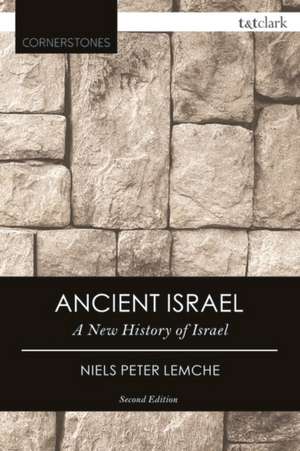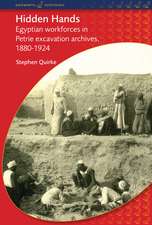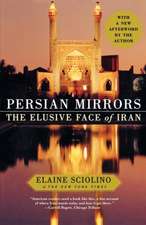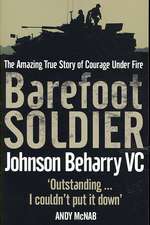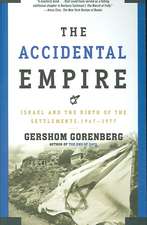Ancient Israel: A New History of Israel: T&T Clark Cornerstones
Autor Niels Peter Lemcheen Limba Engleză Paperback – 18 noi 2015
Din seria T&T Clark Cornerstones
- 13%
 Preț: 182.65 lei
Preț: 182.65 lei - 11%
 Preț: 249.24 lei
Preț: 249.24 lei - 13%
 Preț: 183.54 lei
Preț: 183.54 lei -
 Preț: 125.65 lei
Preț: 125.65 lei -
 Preț: 127.81 lei
Preț: 127.81 lei - 14%
 Preț: 179.56 lei
Preț: 179.56 lei - 13%
 Preț: 181.77 lei
Preț: 181.77 lei - 13%
 Preț: 181.77 lei
Preț: 181.77 lei - 11%
 Preț: 262.87 lei
Preț: 262.87 lei - 25%
 Preț: 180.44 lei
Preț: 180.44 lei - 12%
 Preț: 245.54 lei
Preț: 245.54 lei - 14%
 Preț: 179.10 lei
Preț: 179.10 lei - 14%
 Preț: 178.65 lei
Preț: 178.65 lei - 12%
 Preț: 185.33 lei
Preț: 185.33 lei - 13%
 Preț: 181.32 lei
Preț: 181.32 lei - 13%
 Preț: 181.77 lei
Preț: 181.77 lei -
 Preț: 250.23 lei
Preț: 250.23 lei -
 Preț: 172.59 lei
Preț: 172.59 lei - 23%
 Preț: 171.39 lei
Preț: 171.39 lei - 12%
 Preț: 240.98 lei
Preț: 240.98 lei
Preț: 181.77 lei
Preț vechi: 209.42 lei
-13% Nou
Puncte Express: 273
Preț estimativ în valută:
34.78€ • 36.41$ • 28.78£
34.78€ • 36.41$ • 28.78£
Carte tipărită la comandă
Livrare economică 07-21 aprilie
Preluare comenzi: 021 569.72.76
Specificații
ISBN-13: 9780567662781
ISBN-10: 0567662780
Pagini: 296
Dimensiuni: 156 x 234 x 20 mm
Greutate: 0.5 kg
Ediția:Revised
Editura: Bloomsbury Publishing
Colecția T&T Clark
Seria T&T Clark Cornerstones
Locul publicării:London, United Kingdom
ISBN-10: 0567662780
Pagini: 296
Dimensiuni: 156 x 234 x 20 mm
Greutate: 0.5 kg
Ediția:Revised
Editura: Bloomsbury Publishing
Colecția T&T Clark
Seria T&T Clark Cornerstones
Locul publicării:London, United Kingdom
Caracteristici
Considers whether and how a history of ancient Israel can be written
Notă biografică
Niels Peter Lemche is Professor Emeritus in the Department of Biblical Exegesis at the University of Copenhagen, Denmark.
Cuprins
PrefaceTable of Chronology Reflective Introduction1. Geography, Demography, Economy2. Text and History3. The Pre-Monarchical Period4. The Period of Monarchy5. The Exile and the Post-Exilic Period6. Israelite ReligionA Guide to Relevant LiteratureIndex of Biblical References Index of Authors
Recenzii
Grabbe is to be congratulated for his modesty in presenting this material as prolegomena rather than as A, let alone The, History of Israel, thereby making a valu-able point about the nature of such an exercise. And he is to be thanked for bringing together a wealth of important material for others wishing to understand more about ancient Israel's historical context.
[A]n indispensable tool for anyone teaching and learning biblical history . provides a great starting point to navigate through the way the field has evolved . In all, Grabbe provides exactly what he promised to offer and does so better than anyone before him. Ancient Israel shall remain and continue to serve as an essential resource for students, teachers, and researchers of biblical history and archaeology.
Should serve as a great example of scholarly discussion, a stimulus to further methodological reflection, and a model to follow in clarity of expression.
When it first appeared, Lemche's Ancient Israel was the first of a new generation of Iron age histories, with its insistence on a sociological rather than theological approach, its rejection of the 'rationalistic biblical paraphrases', (as Lemche felicitously termed what had gone before). If some features of this new approach were already being anticipated, Lemche provided the first synthesis, laying the foundation for the current agenda. In this new edition, some of his own modifications and developments of that agenda are also reviewed. It remains an excellent foundation for historical research into the Hebrew Bible.
When it was first published, this best-selling introductory textbook on the history of ancient Israel stood at the cusp of the departure from a history based on a rational paraphrase of the Bible and the construction of the critical, archaeologically based history of Palestine which is dominant today. Rooted in a social science-based perspective of Palestine's ancient past, Lemche based himself in the rapidly changing perspectives of Israel and Judah's histories of the decade preceding his textbook and set a firm foundation for the critical histories of the present.
[A]n indispensable tool for anyone teaching and learning biblical history . provides a great starting point to navigate through the way the field has evolved . In all, Grabbe provides exactly what he promised to offer and does so better than anyone before him. Ancient Israel shall remain and continue to serve as an essential resource for students, teachers, and researchers of biblical history and archaeology.
Should serve as a great example of scholarly discussion, a stimulus to further methodological reflection, and a model to follow in clarity of expression.
When it first appeared, Lemche's Ancient Israel was the first of a new generation of Iron age histories, with its insistence on a sociological rather than theological approach, its rejection of the 'rationalistic biblical paraphrases', (as Lemche felicitously termed what had gone before). If some features of this new approach were already being anticipated, Lemche provided the first synthesis, laying the foundation for the current agenda. In this new edition, some of his own modifications and developments of that agenda are also reviewed. It remains an excellent foundation for historical research into the Hebrew Bible.
When it was first published, this best-selling introductory textbook on the history of ancient Israel stood at the cusp of the departure from a history based on a rational paraphrase of the Bible and the construction of the critical, archaeologically based history of Palestine which is dominant today. Rooted in a social science-based perspective of Palestine's ancient past, Lemche based himself in the rapidly changing perspectives of Israel and Judah's histories of the decade preceding his textbook and set a firm foundation for the critical histories of the present.
